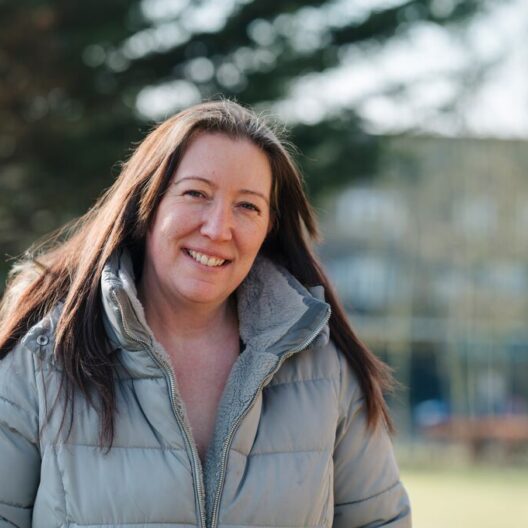
A crisis of isolation and fear is gripping people struggling with debt and poverty across the UK, according to the new report, No Time to Lose*. It looks at the experiences of CAP’s clients, and reveals a stark picture where debt is forcing people into hiding, with a staggering 85% feeling isolated, and more than half (52%) admitting they were afraid to leave their homes.
This comes alongside CAP’s latest polling with Opinium, which reveals that over 11.2 million UK adults are suffering with loneliness (21%)*, with 11.1 million (20%)** living alone. Importantly, over 4.6 million (8%)*** report not having a support network.
No Time to Lose highlights that, in partnership with its network of local church partners, CAP provided specialist debt help to 8,716 people in 2024, with an average debt of a new client totalling £12,260.18. CAP is now warning about its concerns that isolation and fear are preventing people from seeking help, storing up long-term problems.
CAP’s Chief Mission Officer, Graeme McMeekin, said:
The crippling fear and loneliness our clients talk about are often driven by the pressure of mounting debt, and the shame of feeling unable to manage on low incomes in the face of increasing debts. Our clients are often terrified to even open the door until they know we’re from CAP! The unseen impact of this hidden crisis of loneliness and debt is that people feel unable to ask for help, with many isolating from family and friends. This traps them into a cycle of poverty and despair, often worsening their mental health.
Findings from No Time to Lose highlight the extent of the constant state of anxiety that many of the people coming to CAP for help report feeling:




Mum of three, Jolene, faced the raw isolation of a financial collapse when her working hours were slashed at the same time as she became liable for additional debts: “I’d worked hard to get where I was, and I’d put myself through qualifications so I’d be in a good financial position. My family and I weren’t able to go on holiday, but I could afford little luxuries like an occasional meal out. My kids had spent most of their lives in a flat, and then we finally moved into a house.
“But my ex-partner left, which meant not only was I now responsible for paying back all the bills, but I was stuck paying off his debts as well. Going from a life where you work, to literally putting your pennies together, it’s deeply scary. It’s the headspace of it. I didn’t sleep properly because my head was permanently calculating, worrying about where the next meal’s going to come from. It was a really depressing time.”
Having isolated herself, Jolene finally reached out to Christians Against Poverty which had a debt centre based at her local church, initially hoping for help with food for her children. However, it also proved the starting point of helping Jolene get control of her finances. It also opened up a new community of support, helping break the cycle of isolation.
Jolene says:

That community has literally saved me, it’s given me and my family hope for the future. What churches working with CAP do is provide a life-changing experience, but it’s not just the initial support and getting people out of debt: it’s that life-long support and guidance that they give you.
The importance of locally-based, face to face debt help for people facing loneliness and isolation will be a key focus for CAP during Loneliness Awareness Week. During the week, the charity’s network of over 1,000 church partners across the UK will be encouraging local people who feel isolated by debt to reach out to one of CAP’s 250 local debt centres. Anyone can check online to find out where their nearest CAP debt centre is, as well as having useful online resources such as CAP’s Guide to Dealing with Loneliness.
ENDS
Notes to editors
Contact
Please direct further media enquiries, including requests for case studies, to CAP’s PR team on 01274 760801, [email protected].
CAP Client Report figures: The statistics in CAP’s Client Report are drawn from CAP’s annual report and accounts and analysis of data from CAP’s debt help case management system for 2,225 UK-wide client households that had a Financial Statement activated for the first time in 2024 (including 185 in Scotland, 68 in Wales and 79 in Northern Ireland). Throughout this report, this data set is referred to as ‘new CAP clients’ or ‘new CAP client households’ where applicable. Data has also been gathered from 527 responses to CAP’s annual debt help client survey, conducted online and by phone between November and December 2024. This data set is referred to as ‘CAP clients’ throughout the report.
Opinium polling: Polling commissioned by CAP and conducted by Opinium. Total sample size was 2000 UK adults. Fieldwork was undertaken on Friday 28 March 2025. The survey was carried out online. The figures have been weighted and are representative of all UK adults (aged 18+). Population figures have been calculated using Opinium’s UK population estimates of 54,196,443 UK adults.
*On a nat rep survey of 2000 UK adults, 413 are UK adults who often feel lonely. 413 / 2000 * 54196443 (UK adult population) = 11191565
**On a nat rep survey of 2000 UK adults, 410 are UK adults who live alone. 410 / 2000 * 54196443 (UK adult population) = 11110271
***On a nat rep survey of 2000 UK adults, 169 are UK adults who don’t have a support system. 169 / 2000 * 54196443 (UK adult population) = 4579599




